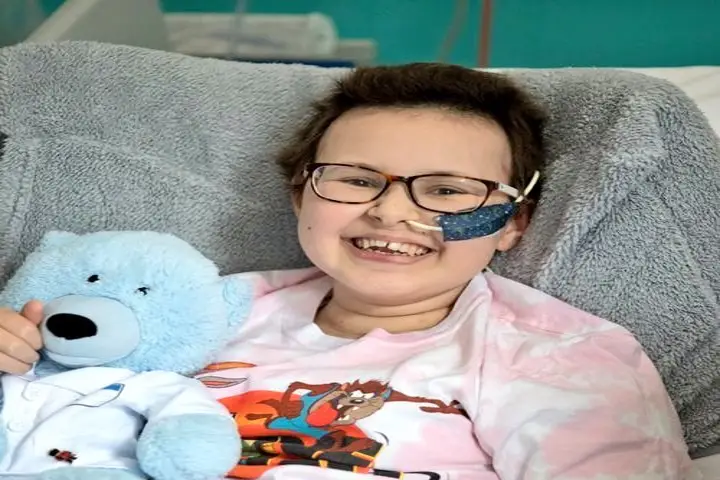

The 13-year-old Alyssa whose blood cancer went into remission due to cell engineering (Pic. Courtesy Twitter/@Goodable)
Bringing a ray of hope for those afflicted with a deadly form of blood cancer, doctors in Britain have pioneered a treatment which helped a 13-year-old girl, suffering from T-cell acute lymphoblastic leukaemia, go into remission.
Occurring commonly in children this leukaemia affects the B cells and T cells – which are part of the immune system and protect the body from viruses.
The girl is Alyssa and is the first patient to receive this treatment. She was found to be suffering from this disease in 2011 and she did not respond to conventional lines of treatment that included bone marrow transplant and chemotherapy.
Following this, she was signed up for the clinical trial of a new therapy at Great Ormond Street Hospital for Children in London. In this treatment genetically engineered immune cells from a healthy volunteer were used. After the procedure in 28 days her cancer was found to be in remission enabling a second bone marrow transplant to be done in order to reinstate her immune system.
Six months later she was found to be “doing well” and returned home located in Leicester, central England where she received follow-up care.
Describing her turnaround as “quite remarkable”, Robert Chiesa, a GOSH consultant added that the results of this therapy needed to be observed and confirmed in the next few months.
A statement released by the hospital said: “Without this experimental treatment, Alyssa’s only option was palliative care.”
Alyssa was given T cells that were base-edited which involves converting chemically single nucleotide bases or letters of the DNA code that convey directions for a specific protein.
It was in 2015 that GOSH and University College London scientists developed the use of genome-edited T cells to cure B-cell leukaemia. When it came to treating other forms of leukaemia, it was found that T cells which had been made to pinpoint and attack cancerous cells ended up killing each other.
To overcome this serious problem, several additional DNA alterations had been affected in the base-edited cells.
Talking about Alyssa treatment, Waseem Qasim, GOSH Consultant Immunologist and Professor said: “”It’s our most sophisticated cell engineering so far and paves the way for other new treatments and ultimately better futures for sick children.”
Kiona, Alyssa’s mother, observed: “Hopefully this can prove the research works and they can offer it to more children.”
The findings of the research were presented at the annual meeting of the American Society of Haematology.
India decisively asserted its military superiority over Pakistan during this month's brief but intense conflict,…
Trade associations and local business groups in Pakistan-occupied Gilgit-Baltistan (PoGB) launched an indefinite protest on…
A human chain and protest march was organized by various organizations in front of the…
The United States on Saturday announced the expansion of its security partnerships with India through…
Highlighting the use of indigenous platforms during Operation Sindoor, Chief of Defence Staff (CDS) General…
Congress MP Shashi Tharoor on Friday (local time) said that Colombia will issue a statement…